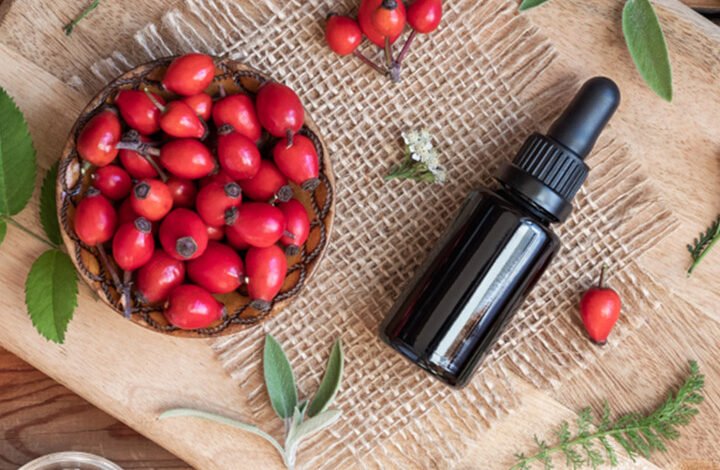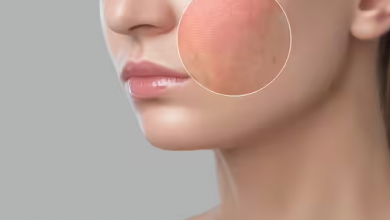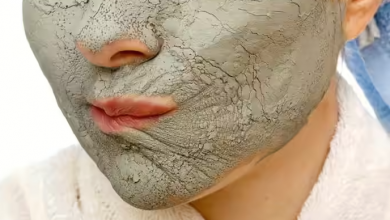Benefits, Uses, and Side Effects of Rosehip Oil for Acne

If you’re looking for natural remedies for acne, rosehip oil might be a great option. This oil, extracted from the seeds and fruits of the rose plant, is rich in essential nutrients and has therapeutic properties that can help manage acne. In this article, we’ll explore the benefits of rosehip oil, how to use it, and important considerations before incorporating it into your skincare routine.
What is Rosehip Oil?
Rosehip oil, or rosehip seed oil, is derived from plants belonging to the Rosa genus, particularly the dog rose and damask rose. It is well-known for its health benefits, including anti-inflammatory and disease-preventing properties. Rich in vitamin C, rosehip oil has been traditionally used to treat a variety of health issues, including colds, infections, and inflammatory diseases. Additionally, it can be effective in managing acne.
Benefits of Rosehip Oil for Acne
- Regulates Sebum Production:
High levels of sebum can clog pores and trap acne-causing bacteria. Rosehip oil contains linoleic acid, which helps balance oil production in the skin, reducing inflammation and soothing acne lesions. It is composed of 40%-56% linoleic acid, essential for maintaining healthy skin and preventing acne. - Antimicrobial Properties:
Rosehip oil has been shown to have antimicrobial effects against Staphylococcus aureus, the bacteria often responsible for acne. This can help reduce inflammation and prevent the formation of blemishes and scars. - Anti-inflammatory Properties:
Acne is often exacerbated by inflammation. The high levels of phenolic acids, tocopherols, and carotenoids in rosehip oil provide antioxidant protection, reducing oxidative stress and soothing redness and irritation associated with acne. - Promotes Wound Healing:
Acne can leave behind scars and lesions. Rosehip oil is known for its wound-healing properties, improving the appearance of scars and minimizing the chances of developing new acne spots.
How to Use Rosehip Oil for Acne
- Direct Application:
- Steps:
- Rub 2-3 drops of rosehip oil between your palms.
- Gently massage the affected area using circular motions.
- Frequency: Use it twice daily, once in the morning and once at night.
- Spot Treatment:
- Steps:
- Dab a small amount of oil on acne spots using a cotton swab.
- Leave it on overnight and wash off in the morning.
- Frequency: Daily until the acne heals.
- Mix with Other Products:
- Combine 2-3 drops of rosehip oil with your regular moisturizer, face masks, or lotions for added nourishment.
- Aromatherapy:
- Mix a few drops of essential oils with rosehip oil for use in aromatherapy or steam treatments for acne-prone skin.

Other Skin Benefits of Rosehip Oil
- UV Protection: Rosehip oil contains phenolic compounds and high levels of vitamin C, which help protect the skin from UV damage and oxidative stress.
- Anti-aging Benefits: It can reduce the appearance of fine lines and wrinkles, improve skin moisture, and enhance elasticity.
- Skin Conditions: Topical application may help with conditions such as dermatitis, eczema, and other inflammatory skin disorders.
Side Effects of Rosehip Oil
While rosehip oil is generally considered safe, it can cause allergic reactions in some individuals. Possible side effects include:
- Redness
- Skin rash
- Hives
- Wheezing
- Itchy or watery eyes
- Dizziness
- Breathlessness
Safety Precautions
- Patch Test: Always perform a patch test on a small area of skin to check for any allergic reactions before applying it to larger areas.
- Sun Sensitivity: Rosehip oil contains carotenoids (provitamin A), which may increase sun sensitivity. Avoid direct sunlight for at least an hour after application.
- Moderation: Use only a few drops to avoid clogging pores.
- Consult a Dermatologist: If you have cystic or hormonal acne, it’s best to consult a dermatologist for appropriate treatment options.
Frequently Asked Questions
- Is rosehip oil good for dry skin?
Yes, rosehip oil is excellent for dry skin and helps keep it hydrated. - Does rosehip oil clog pores?
Excessive use of rosehip oil can clog pores; moderation is key. - Can rosehip oil reduce fine lines and wrinkles?
Yes, rosehip oil can help diminish the appearance of fine lines and crow’s feet. - Can rosehip oil help with rosacea?
Rosehip oil may help treat inflammatory skin conditions like rosacea, but consulting a doctor beforehand is advisable.
Conclusion
Rosehip oil is a powerful natural remedy that can help manage acne while offering various skin benefits, including anti-aging and healing properties. By reducing inflammation, regulating oil production, and promoting wound healing, rosehip oil can be an excellent addition to your skincare routine. Always remember to conduct a patch test and consult with a dermatologist if you have any concerns.






